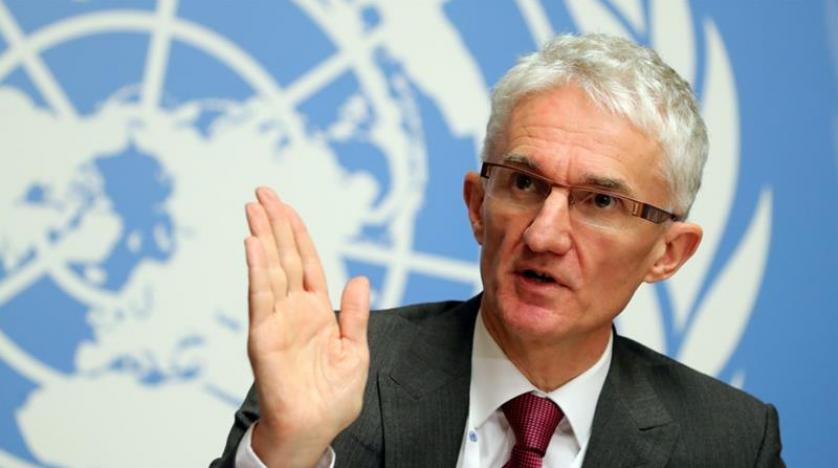BALADI NEWS
UN Humanitarian Chief Mark Lowcock warned Monday that the 10 cases of COVID-19 and one death confirmed in Syria are just “the tip of the iceberg.”
Addressing the UN Security Council he said that “all efforts to prevent, detect and respond to COVID-19 are impeded by Syria’s fragile health system,” noting that only around half the country’s hospitals and primary health care facilities were fully functional at the end of 2019.
Judging from other countries “a devastating impact” can be expected on vulnerable communities, he stressed.
Efforts to prevent and combat the virus are also impeded by high levels of population movement, challenges to obtaining critical supplies including protective equipment and ventilators, and difficulties of isolating in crowded camps for the displaced with “low levels of sanitation services.
With the Syrian conflict entering its 10th year this month, Lowcock said, over half the population has been forced to flee their homes, more than 11 million people in the country including nearly 5 million children need humanitarian assistance, almost eight million people don’t have reliable access to food, over 20 percent more than last year, and 500,000 children are chronically malnourished, the Associated Press reported.
According to the UN official, humanitarian needs in Syria “remain enormous,” with data showing clear evidence of deteriorating conditions since December, including increased rates of stunting — “a consequence of child malnutrition, from which it is rarely possible fully to recover.”
For his part, UN special envoy for Syria Geir Pedersen told the council that “after terrible violence, an uneasy calm prevails on the ground – and now, Syrians face a new potentially devastating threat in COVID-19.”
He echoed UN Secretary-General Antonio Guterres’ call for an immediate global cease-fire in all conflicts to tackle the coronavirus, warning that “Syria is at high risk of being unable to contain the pandemic.”
Also, US Ambassador Kelly Craft supported a sustained cease-fire, “not another tactical pause that allows Syrian forces and their Russian and Iranian allies to rest before resuming their campaign of terror in the northwest.”
She also urged more UN cross-border operations, criticizing Russia and China for blocking a crossing in the northeast that has prevented badly needed medical aid and equipment from getting into the area.
According to AP, the Security Council meeting by video conference was closed, and a press statement was issued after the meeting expressing concern at the humanitarian situation in Syria and the potential impact of the COVID-19 pandemic and called for unimpeded humanitarian aid deliveries and “a sustained period of calm” throughout the country.
Source: Asharq al-Awsat.

